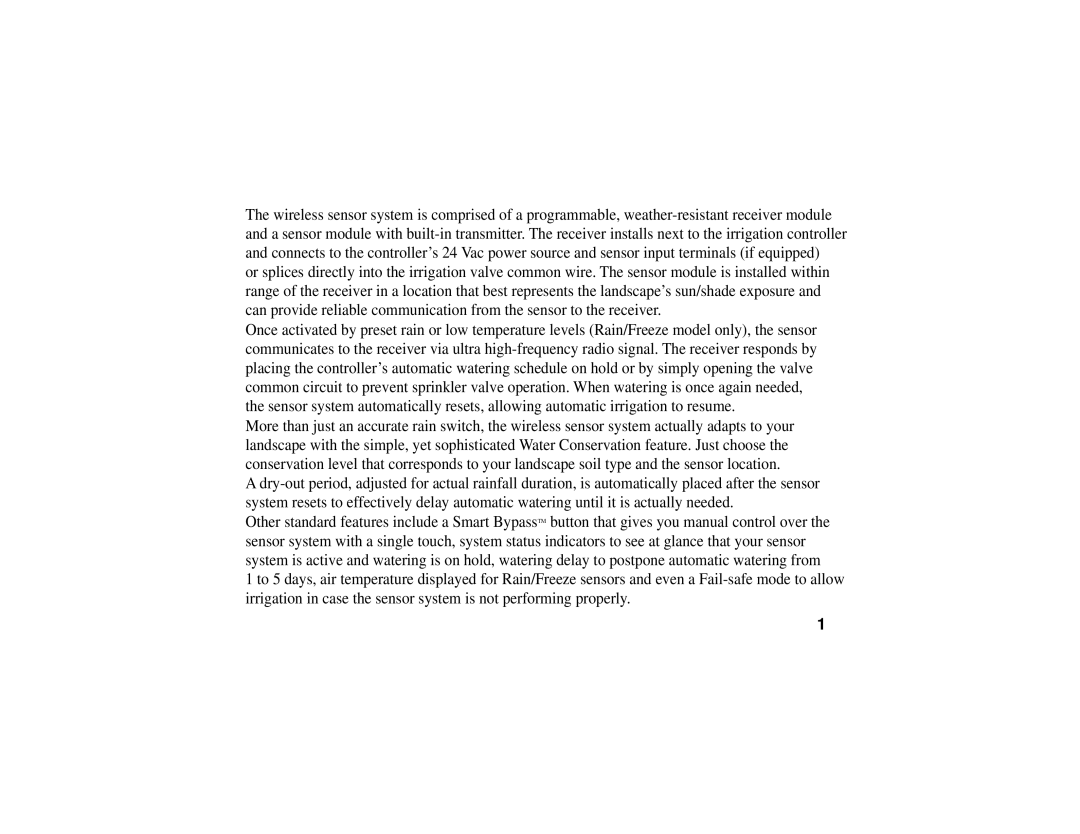
The wireless sensor system is comprised of a programmable,
or splices directly into the irrigation valve common wire. The sensor module is installed within range of the receiver in a location that best represents the landscape’s sun/shade exposure and can provide reliable communication from the sensor to the receiver.
Once activated by preset rain or low temperature levels (Rain/Freeze model only), the sensor communicates to the receiver via ultra
More than just an accurate rain switch, the wireless sensor system actually adapts to your landscape with the simple, yet sophisticated Water Conservation feature. Just choose the conservation level that corresponds to your landscape soil type and the sensor location.
A
Other standard features include a Smart BypassTM button that gives you manual control over the sensor system with a single touch, system status indicators to see at glance that your sensor system is active and watering is on hold, watering delay to postpone automatic watering from
1 to 5 days, air temperature displayed for Rain/Freeze sensors and even a
1
